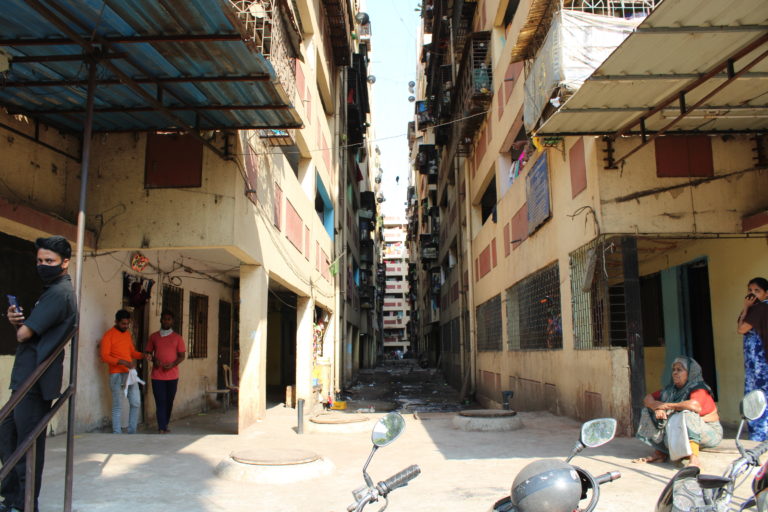Housing crisis targets Gen Z & single mothers

Cities across the world are registering an unprecedented spike in house prices. (Photo: Brandon Griggs / Unsplash)
In Sweden, the government fell in June earlier this year when it tried to change the rules that would have led to rise of house rents. In the recent elections in Germany and also in Canada political parties promised new policies to keep house prices as well as rents under check as cities across the world are registering an unprecedented spike in house prices, even as rest of the economy struggles to keep pace with the growth in real estate.
The issue is not just limited to the developed economies in the West. In China, for instance, one of the reasons behind the crackdown on various real estate companies like Evergrande is the spiralling rise in house prices that has led the average price of a house in Shenzen, the hub of Chinese tech industry, to rise to 43.5 times the average salary.
Prices in Seoul have risen by over 90 pc in under four years, while price rise in European cities like London, Berlin, Frankfurt and Paris are beating the previous records. In the United States, the rise in 2021 has left the 2008 housing bubble, that eventually led to collapse of global financial system, seem like a recession.
What has been the biggest surprise is that even as the pandemic was raging across the world, housing prices kept on rising, as if powered by some miracle especially as economic uncertainty led to every other sector collapse simultaneously.
The situation is now so serious that most governments, whether of the right or left wing, are being forced to introduce policies that try to curb the viral inflation afflicting the sector. In Berlin, for instance, the municipality has bought 15,000 apartments from corporate owners for Eur 2.5 billion in order to lease them to the weaker sections of the society. Similarly, some other governments are bringing in or tightening rent control laws, while in recent elections, Canadian Prime Minister Justin Trudeau’s party manifesto promised to bar foreigners from buying up homes in order to keep the prices under check.
The situation has turned so serious across the world that it is threatening the future of hundreds of millions of the youth, notably the millennials and the Gen Z that are seeing their dream of owning a house evaporate in thin air as prices rise and many of them are not even able to afford to rent a house on their own and are now being forced to move back in with their parents.
But even harder hit than the young are other underprivileged sections of the society, notably single mothers who are facing the prospects being rendered homeless in face of the rise, both in rents as well as house prices.
There are two main reasons behind this price rise. One is of course the issue of demand and supply. In most countries across the world, homes are in extremely short supply, especially in places where jobs are available or those jobs that are much sought after such as technology or financial services. This short supply is partly to be blamed on the governments as they keep a strict check on building rules within cities and most of the urban development programmes fail to adequately account for demand and hence cities tend to run out of homes.
Another reason is that with low interest rates, housing offers one of the best places for investors to park their funds and this speculative buying of homes, for making a quick buck, rather than for staying, has led to disappearance of even the few homes that have come on the market.
With a severe shortage of homes, even those looking to buy a house on their own are forced to rent one and this has led to rents rising even faster than house prices. This puts the poor and especially the single mothers in a difficult position as even without the recent rise in rents, finding a suitable house, close to the place of work and with the necessary social services like a good school and markets in the vicinity had been a nightmare for most people, leading to the a spike in homelessness, even in hot cities like San Francisco where the number of homeless has risen sharply where a number of them have taken to living in tents on the city’s streets.
The situation of housing has become so critical in California, and not just in San Francisco, that it has led to a number of large firms moving base away to another state where their employees can find housing. One recent example is the electric car manufacturer Tesla that has moved base to Texas.
If the situation is so challenging for even tech workers, who are by far the best paid in the world, it is difficult to imagine the situation that those in poorly paid jobs like retail or informal jobs find themselves in for finding a roof above their head.
The housing crisis brings with it a number of challenges. The world has seen unprecedented low interest rates that have led to a sharp rise in mortgages being taken out by people seeking to buy their own homes. But as the interest rates begin to rise, as they will latest by next year, one can imagine a repeat of the 2008 financial crisis which also began when the housing bubble burst. Then, too, the crisis hit the poorer sections of the society the worst, while investors and speculators managed to get out of the crisis with barely any sign of damage.
This time, too, if or rather when the housing bubble bursts, it will hit the poor the hardest. Moreover, we are now barely eight years away from the deadline that all governments of the world have set for themselves to provide housing for all as part of the United Nations Sustainable Development Goals (UNSDGs). But the world remains perhaps further away from this goal than it has ever been.
Housing already a challenge in India

Housing in Indian cities is already beyond reach of over 70 pc of inhabitants (MIG Photos/Varsha Singh)
The situation in India is a bit different from what has been seen in the rest of the world. While the housing prices have not zoomed in the past couple of years, but India faces the biggest deficit in housing in the world as more than half of the population lacks a proper house, having to make do with shanties, slums or thatched huts. India lacks close to 30 million houses and though successive governments have promised housing for all, the country remains as far away from the goal as ever. And now to make the situation worse, for the vast chunk of the Indian population that is not even close to being in the middle class, realtors have warned that housing prices may rise by up to 15 pc within a year due to higher input costs. Already, houses in India are beyond the reach of most. Two years ago, the Reserve Bank of India had said that housing affordability had worsened sharply since 2015, with the house price to income ratio rising from 56.1 in March 2015 to 61.5 in March 2019, making India one of the least affordable places for housing in the world, in terms of median income here.
There is no doubt that the actual situation now is dramatically worse than even in 2019 as the poor management of the Covid-19 pandemic by the government and absence of any financial support has seen over 230 million Indians pushed back into poverty, undoing the poverty eradication efforts of over a decade in a single year.
It is time for the governments to take the matter in their hands and change some rules. First, they need to increase housing supply in the markets, both by building more homes on its own as well as incentivising private builders to rapidly increase housing supply. It would also mean changing zoning and housing rules to ease the construction, which is currently heavily constrained. Another measure to be taken by the governments is to keep a check on rents to ensure that the rise is linked to inflation rather than the greed of the landlords, that are often immensely profitable financial services companies like banks and insurance firms.









